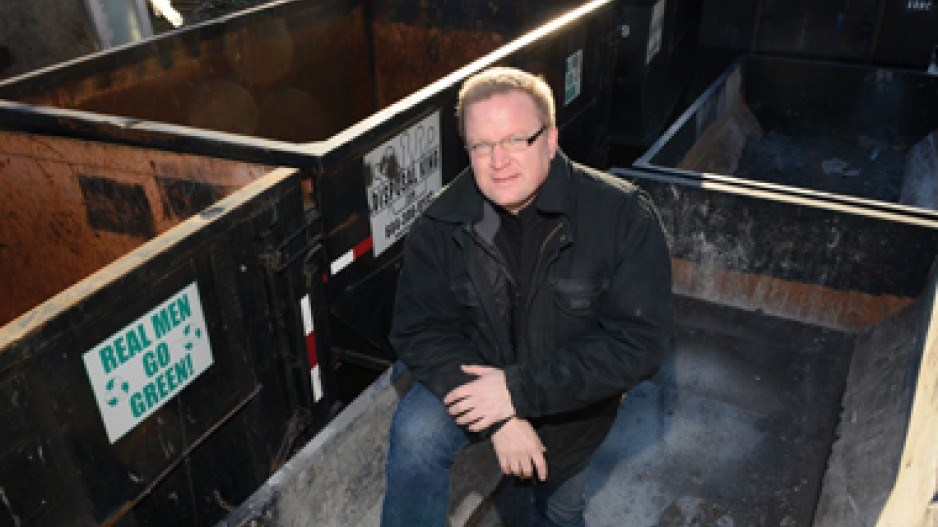Developers looking to tear down a building in order to build something new are turning to a new option – deconstruction rather than demolition.
Deconstruction involves taking a building apart mostly by hand and recycling or reusing as much of the building materials as possible.
“I thought, we have to change the way we’re doing business, and we have to start recycling more,” Miles Timmis, owner of Disposal King, told Business in Vancouver.
Timmis’ company is currently working on a demolition job in Surrey for Surelock Builders. The job involved tearing down two houses. While the first demolition was done as usual, Timmis decided to do the second tear-down differently.
“We’ll do the demolition by hand, and tear off all the different components that can be recycled or reused,” Timmis said.
Doors, windows and sinks will go to renovation contractors Timmis knows. The drywall will be crushed up at New West Gypsum Recycling to make new drywall, and the shingles on the roof will be made into asphalt. Much of the wood in the house can likely be reused as well.
While the job will take longer and labour costs will be higher, Timmis expects the cost to be about the same as a traditional demolition. That’s because for a normal teardown, around 80% of the cost is in the dumping fee.
“When we do it by hand it’s going to switch that around,” Timmis said.
There are several Lower Mainland companies who are already experts at demolition, said Esther Berube, senior project engineer for Metro Vancouver’s solid waste department. They include 3R Demolition, Litchfield Demolition and Pacific Blasting & Demolition.
But Berube added that because of economies of scale, deconstruction is usually done with large buildings. The practice is much less common with single-family homes.
Metro Vancouver is trying to encourage more contractors and homeowners to choose deconstruction because it means less waste being dumped in Lower Mainland landfills.
“More material can be reused or recycled when buildings are taken apart in that systematic way,” Berube said.
The City of Vancouver offers a special deconstruction permit for single-family homes. The permit is issued before the building permit, giving contractors more time to get started on the deconstruction. The city also offers reduced dumping fees. However, permit holders must commit to divert at least 75% of the waste from the landfill.
Berube said that while Vancouver’s voluntary permit is a good first step, municipalities can also require contractors to take demolition waste to recycling facilities first, rather than allowing them to take it directly to the landfill.
The regional district has drafted a sample bylaw that municipalities can adopt; so far, Port Moody and the City of North Vancouver have construction recycling bylaws on the books.
For Disposal King, the current job is a test run. The company hopes to take what it learns doing this project and make deconstruction the norm on future job sites.
“It’s a demonstration for ourselves,” Timmis said. “We want to see if we can hit a 90 or 95% recycling rate.”
In the future, Timmis also hopes to incorporate job training for people with barriers to employment.
“It’s a whole circle, and it’s real recycling and it’s helping the community,” he said.
Testing development deconstruction in East Vancouver
To test how deconstruction would work on a single-family home, Lighthouse Sustainable Building Centre worked with Benefits Waste Management and reVision Custom Homes Renovation on a project in East Vancouver.
The team was able to keep 85% of the waste material out of the landfill.
“We developed a waste management plan, and we brought in a consultant from Washington to walk through the whole building and identify the key components that would be key candidates for deconstruction,” said Helen Carruthers, green building project co-ordinator with Lighthouse.
Metro Vancouver used findings from the pilot to create its model bylaw and recommendations for diversion targets.
Metro Vancouver also offers a toolkit for contractors and building owners who are considering deconstruction.




